Because I want to leave the reading experience to the potential reader — whether child or adult — I don’t tend to reveal spoilers in my reviews, even in picture books. But today I’m bending that rule to talk about three surprise endings that gave me pause.
The Grasshopper Hopped!
by Elizabeth Alexander, illustrated by Joung Un Kim
 The grasshopper does indeed hop from different settings with the help of pull tabs and a cute, quick storyline. The art is sweet, the text is slight, and the tabs are workable. The grasshopper does seem make some questionable hopping choices, including into a refrigerator and the ocean, but that’s part of the fun. At the end of the book though, he hops into a frog’s mouth. GULP! Wow, I thought to myself on the first read, that seems kind of dark. But the page turn reveals a safe grasshopper and a smiling frog and the assurance of “Just kidding.” I think the surprise ending works here because the age of the intended reader, who isn’t likely to be thrown by the idea that yeah, the frog would eat the grasshopper. And the surprise stayed with me, though I don’t think that it’s a real issue.
The grasshopper does indeed hop from different settings with the help of pull tabs and a cute, quick storyline. The art is sweet, the text is slight, and the tabs are workable. The grasshopper does seem make some questionable hopping choices, including into a refrigerator and the ocean, but that’s part of the fun. At the end of the book though, he hops into a frog’s mouth. GULP! Wow, I thought to myself on the first read, that seems kind of dark. But the page turn reveals a safe grasshopper and a smiling frog and the assurance of “Just kidding.” I think the surprise ending works here because the age of the intended reader, who isn’t likely to be thrown by the idea that yeah, the frog would eat the grasshopper. And the surprise stayed with me, though I don’t think that it’s a real issue.Barry, the Fish with Fingers
by Sue Hendra
 It’s a boring life under the sea, until Barry the fish shows up with fingers stuck on his fins. He explains to all the other fish how many things he can do with these new fingers, and soon everyone wants them. The question of supply and demand is answered with a timely drop of a box that falls to the bottom of the ocean and allows all the fish to enjoy this new discovery. The box also reveals to the reader that the fish fingers are fish sticks — which is funny and clever, but at the same time a little disturbing. Which, of course, is what makes the reveal funny and clever. I liked the book and the art, but the ending kept coming back to me. Should I explain to my four-year-old niece that the ending is funny because the fish are wearing fingers made of other fish — dead, cut-up fish made into sticks for kids’ dinner? See when I write it out like that, it feels kind of wrong. But yet, I don’t know that it’s so wrong.
It’s a boring life under the sea, until Barry the fish shows up with fingers stuck on his fins. He explains to all the other fish how many things he can do with these new fingers, and soon everyone wants them. The question of supply and demand is answered with a timely drop of a box that falls to the bottom of the ocean and allows all the fish to enjoy this new discovery. The box also reveals to the reader that the fish fingers are fish sticks — which is funny and clever, but at the same time a little disturbing. Which, of course, is what makes the reveal funny and clever. I liked the book and the art, but the ending kept coming back to me. Should I explain to my four-year-old niece that the ending is funny because the fish are wearing fingers made of other fish — dead, cut-up fish made into sticks for kids’ dinner? See when I write it out like that, it feels kind of wrong. But yet, I don’t know that it’s so wrong. It’s a Book
by Lane Smith
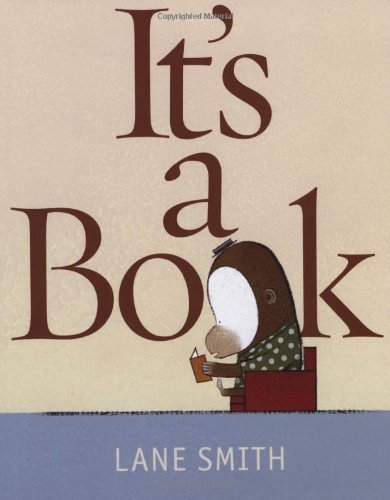 At the very beginning of this book, we are introduced to the characters — a monkey, a mouse, and a jackass. That’s the tip-off. The rest of the story involves a lack of understanding of what a book is, does, and requires — i.e., not hardware, not tweeting, and not charging — as the monkey keeps up the refrain that “It’s a book.” The book trailer that portrays this part of the story got a lot of rave reviews for the cleverness of the concept, perhaps tweaked with the irony of this ode to the non-technical being on a video or presented through the Internet. The official press and media reviews of the book itself were very positive. But here’s the thing: The book ends with the line, “It’s a book, jackass.” Okay, I get the joke in that the donkey clearly is being a fool in not understanding what a book is and the monkey is clearly tired of explaining it and yes, we all know that jackass is both another word for a donkey and a expression for a dummy, so it’s allowed to be in a picture book. Right? I don’t know. I’m having some trouble with this, and it’s not just me. I did notice that the Amazon reviews are very divided, with many parents uncomfortable with the ending. And I wonder if all the positive reviews are looking at this in that higher level of literature as Art, as opposed to actually reading this book to a preschooler. Or a classroom of kids. Or having to explain it to a parent at the front desk of the library. Or is this book really for older kids, even if the marketing and text might indicate differently? I asked this question early in the summer on MotherReader with some great replies in the comments. Check it out and let me know what you think, here or there.
At the very beginning of this book, we are introduced to the characters — a monkey, a mouse, and a jackass. That’s the tip-off. The rest of the story involves a lack of understanding of what a book is, does, and requires — i.e., not hardware, not tweeting, and not charging — as the monkey keeps up the refrain that “It’s a book.” The book trailer that portrays this part of the story got a lot of rave reviews for the cleverness of the concept, perhaps tweaked with the irony of this ode to the non-technical being on a video or presented through the Internet. The official press and media reviews of the book itself were very positive. But here’s the thing: The book ends with the line, “It’s a book, jackass.” Okay, I get the joke in that the donkey clearly is being a fool in not understanding what a book is and the monkey is clearly tired of explaining it and yes, we all know that jackass is both another word for a donkey and a expression for a dummy, so it’s allowed to be in a picture book. Right? I don’t know. I’m having some trouble with this, and it’s not just me. I did notice that the Amazon reviews are very divided, with many parents uncomfortable with the ending. And I wonder if all the positive reviews are looking at this in that higher level of literature as Art, as opposed to actually reading this book to a preschooler. Or a classroom of kids. Or having to explain it to a parent at the front desk of the library. Or is this book really for older kids, even if the marketing and text might indicate differently? I asked this question early in the summer on MotherReader with some great replies in the comments. Check it out and let me know what you think, here or there.Links to material on Amazon.com contained within this post may be affiliate links for the Amazon Associates program, for which this site may receive a referral fee.

















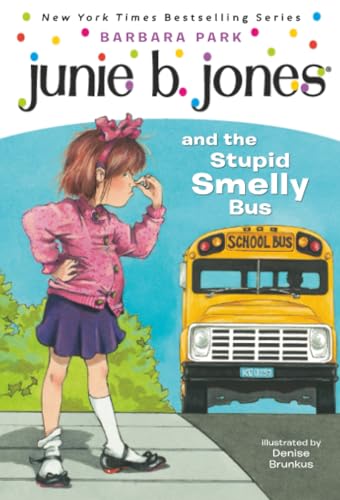



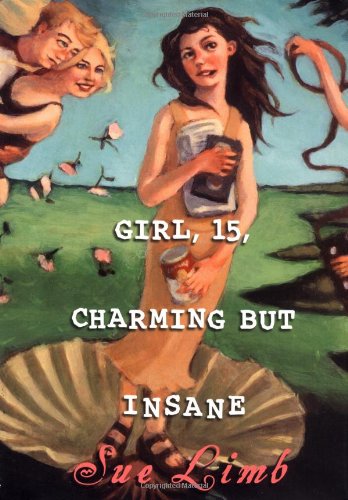
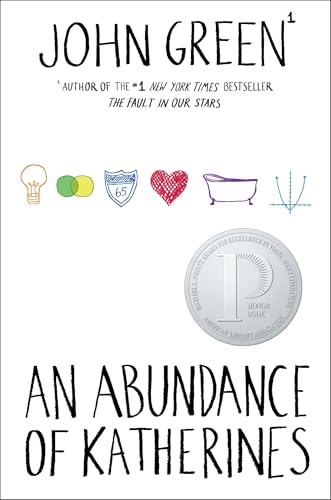
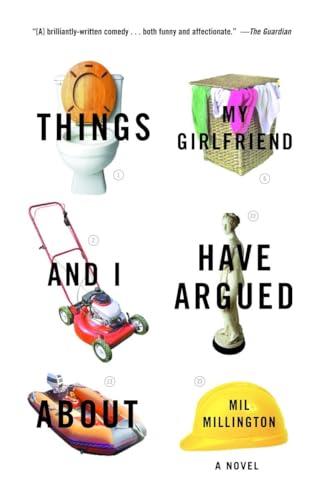
10 comments:
Well...I didn't buy It's a book for my library. I don't have any strong feelings about the ending either way, but my feeling about most of Smith's solo efforts is they're really directed at adults. Our copy of Madam President never checks out and I stopped buying anything he did by himself. A neighboring library bought it and put it in the teen section - my friend there thought the teens would be more likely to appreciate the humor.
Yup, it's an audience thing. But who said picture books should only be for kids? That last line took me by surprise too. Not for the negative term but because it felt too heavyhanded to be funny. The author's hand was showing.
Perhaps you already know this, but "fish fingers" is the British term for fish sticks. Probably adds to the funny for English kids.
I never noticed til it was pointed out to me as an adult that Freddy the Pig eats bacon in Freddy Goes Camping..
My public librarian just commented to me about this book yesterday. I know I cannot use it at school, and as a parent, I would not be happy to read this book to my child only to have it end like this. I wonder why Smith thought this was the best way to end his book.
Coming at it from a preschool teacher/parent of young kids, I know that I wouldn't bring this book into my classroom or home. I get the argument that picture books aren't only for young children, but if you don't know anything about it before you pick it up, it's a common assumption that a book that looks like this would be aimed at, and appropriate for, the 3-6 range. It definitely makes the case for PRE-READING before sharing a book with kids! :)d
But WHY are you bothered by the ending? I'm not saying you shouldn't be, just that I don't understand just what your problem with it is. Is it because of namecalling? Is it because of "ass"? I'm stumped. Obviously people find it inappropriate, but no one is saying why.
Roger, in the other post people went into more detail about it, but for me - well, there's a couple of issues. First, I'd say that I'm no prude about language in general, so it's not really that.
So take the argument that jackass is simply another name for a donkey. Well, then the last line isn't funny, is it? "It's a book, donkey."
It's funny because it's a double meaning as a derogatory statement. But for whom is the humor intended? For the parent who is reading this and knows the joke is over the preschooler's head? Because I don't like those kind of jokes where the explanation is of the "oh, nevermind, dear" variety. Is it meant to be understood by the child reader? In that case, it leaves it to the parent to go into a whole "Yes, I know it's a word for a donkey, and yes I know it was being insulting, but we can't do that - even though the author can because it's Literature."
And maybe that's what bothers me most of all. Playing with the edges of what's appropriate or even necessary in a picture book all in the name of Literature. So I find the people defending it are doing so with that take, the people who don't like it are looking at the title most practically - as book that they want to (or don't want to) read to their preschooler.
I wouldn't read It's a Book to my preschool granddaughter -- nor would I read it to my 7yo grandson, because I don't want to have to explain to them why it's snarky and why it's not appropriate for them to insult others with that word.
I don't think my opinion will change when the boy hits 8 next month. The last thing any kid that age needs is more ammunition.
There are plenty of great books out there which inspire or make kids curious or make them laugh. In fact, I don't have time to read them every great book. So I won't waste time on something that comes with baggage.
When might this be an appropriate book for any kid in my life? Not anytime soon, apparently; my 13yo daughter has outgrown it.
I think Lane forgot what works for kids.
And, MR -- hang in there. I hope your mom's okay.
I guess I see it as a book for third-graders, kids old enough to get the joke. It's not very effective if you don't understand the double meaning.
I'm more bothered by the fish-fingers book, which is so dependent on the Brit term for what we call 'fish sticks" that the book seems meaningless on this side of the pond.
Read it with my niece and nephew. I'd say she (at age 10) is much more the age group for this book. She found it amusing (and we got to revisit the Dam Jokes from Percy Jackson.
As for the marketing, I didn't get the impression this was being aimed at preschoolers. If the joke has to be explained, the child is the wrong age for it.
Post a Comment